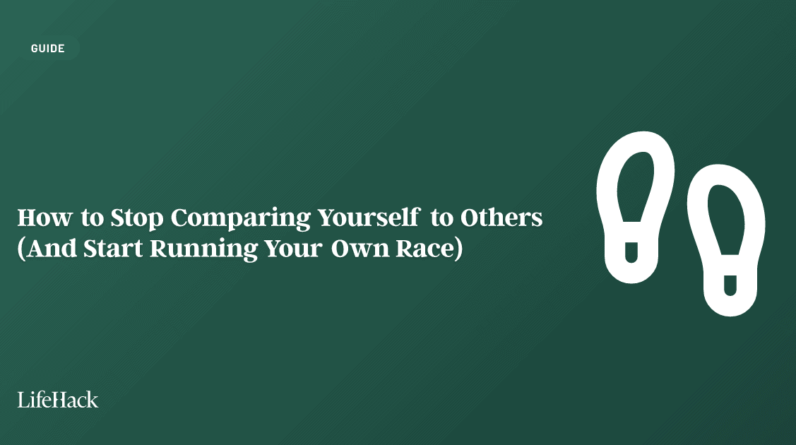
You aren’t destined to become your parents—no matter how much society tries to tell us this is the case.
While some of us love our parents (and we’d go to the moon and back for them), as we get older, we might notice a crossroads in life.
You notice your parent’s or family’s cycles of unhealthy behavior. And maybe you realize you exhibit some of them.
The good news? You don’t have to carry these unhealthy cycles through your life, nor do you need to pass them on to your own children.
In fact, let’s stop these dysfunctional family behaviors here and now. It stops with us.
This article is all about empowering you to break those dysfunctional family cycles of behavior and rise above them, becoming your best self (and passing on the best traits and lessons you possibly can to your children).
How Do You Know Your Family is “Dysfunctional”?
“A dysfunctional family is any family with more than one person in it.”— Mary Karr
The truth is no family is perfect. Every person has their own opinions, biases, perceptions, and emotions. Throw three or more similar people into one room, and you’re likely going to have a few disputes arise. This is completely normal.
In fact, let’s normalize dysfunctional families altogether. Every family has its flaws, no matter how perfect it all might look from the outside. Arguably, some have bigger flaws and darker corners than others (similar to differences between people).
Yet, as adults, the picture-perfect ideal we thought our family once was might get slightly eroded by our own emotional maturity. You might notice you’re particularly sensitive to guilt-tripping due to your own parents guilt-tripping you when you were young.
Or perhaps you have become the guilt-tripper, learning it from your upbringing.
Whatever the case may be, there are a few tell-tale signs you might come from a dysfunctional family (or are currently in one).
Signs of Dysfunctional Family
Dysfunctional families come in all shapes and sizes. Some indicators that your family might be a bit dysfunctional include:
- Addiction
- Perfectionism
- Neglect
- Abuse (emotional or physical)
- Fear/Anxiety
- Conditional love
- Weak or a lack of boundaries
- Poor intimacy
- Poor communication
- Low self-confidence
If the above sounds familiar and dread sets in when you think of spending time with those you love, keep reading. We’ll examine the five types of dysfunctional family dynamics below, as well as how you can overcome them as an individual.
What Are the 5 Types of Dysfunctional Family Dynamics?
The five types of dysfunctional family dynamics include:
1. Substance-Abuse
A shocking eight million children are looked after by parents who struggle with substance abuse.
Inevitably, this can lead to neglect, abuse, inconsistent parenting tactics, and more. Meanwhile, the children in this type of family may struggle with self-esteem issues and trust, as well as feel anger toward their parents and family for their upbringing and personal issues.
2. Conflict-Driven
- Do you have family members you’ve never met?
- Or do you know of certain family members that just don’t talk to each other?
Or perhaps there’s always at least one heated argument or outburst at a family get-together.
All in all, this can create a very stressful environment for children growing up in this family, as well as adults. The constant struggle of miscommunication becomes tangled with issues that never actually get resolved.
This can lead to attachment issues, self-confidence problems, and even our own miscommunication pitfalls (since, as a child in this type of family, you may have never seen healthy communication or resolve).
3. Violent
Verbal, sexual, physical, or emotional abuse damages a person at their core.
It can alter the brain development of a child, leading to decreased ability for learning and memory, heightened states of fear, lack of coordination, and more.
4. Authoritarian
This is the typical “strict parents” family. With many names, like helicopter parents, any slip-up or mistake can feel world-ending to the children in this situation. Mistakes or mishaps are met with severe punishment with no discussion. It’s a dictatorship-run household.
Ultimately, this can lead to the development of poor self-esteem, anxiety, depression, excessive shyness, excessive aggressiveness, or substance abuse vulnerability due to a lack of knowledge on how to cope healthily.
5. Emotionally-Detached
If you never received hugs, warmth, or affection from your parents growing up, you might have come from an emotionally-detached dysfunctional family.
This might make you emotionally unavailable as an adult, as well as you might experience a difficult time being vulnerable, opening up, feeling worthy, and developing a solid identity.
Related Article: Having Trust Issues With Yourself? Understand Why & Learn How to Change That
How to Overcome Growing Up in a Dysfunctional Family
The hard truth is that we can’t choose our family.
Thus, whether you’re in a dysfunctional family (or not), most of us don’t have a choice or other option. At the same time, if you notice abuse of any kind or harm coming to children, it’s important to call the right resources and emergency lines in your town or city to ensure the safety of those involved.
So, as an adult, how can you overcome these dysfunctions?
1. Find a support network.
This may include a combination of friends, therapy, support groups, online communities, etc.
2. Learn about proper communication and healthy relationships.
Since you may not have seen a healthy relationship or family as a child, it’s important to learn what exactly this might look like and how you can start applying skills to facilitate exactly that within your own life.
3. Take back your power.
As a victim, you don’t have control. But you can choose to take back your power and ownership over your own life. You can’t change the things that happened to you, but they don’t have to define who you are.
Of course, depending on your history, it won’t be as simple as snapping your fingers and making it better. But you can choose the path to heal yourself and move forward.
4. Create healthy habits.
- Exercise regularly.
- Eat a healthy diet.
- Find mental health practices and anxiety/stress-reducing techniques.
Find healthy ways to cope, such as journaling, therapy, meditation, breathing exercises, and more.
Related Article: How Self-Aware Are You? The 2 Types of Self-Awareness & How to Improve Yours
We Can’t Choose Where We Come From; But We Can Choose Where We Are Going
The past is impossible to change. But what we do with our future is up to us.
We have so many resources at our fingertips. Take back control of your future by learning more about what you need to know to let go of past cycles and become better for it.
Read Next: Can You Set Healthy Boundaries With Your Family? What it Looks Like & 3 Communication Tips
Updated from Aug 3, 2022







